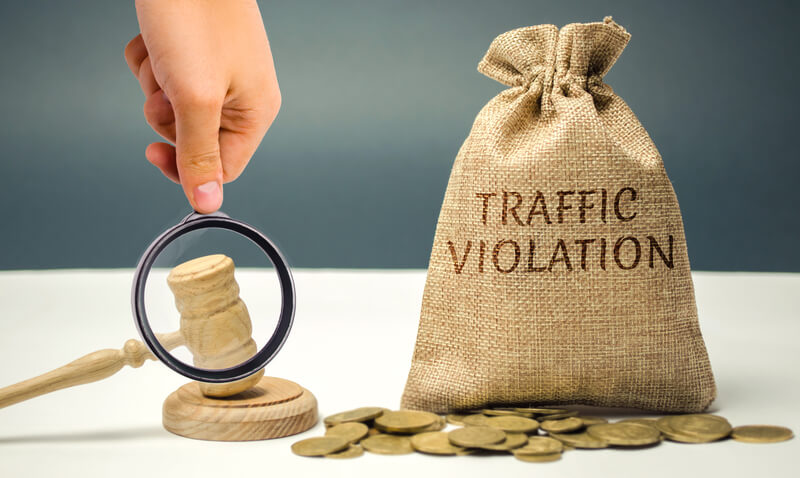Have you found yourself staring at a traffic ticket with dread and frustration? You’re not alone. Millions of citations issued annually often leave drivers feeling helpless and resigned to paying hefty fines.
However, a ticket doesn’t necessarily mean you should accept the consequences without question. It’s possible to negotiate reductions and minimize their impact.
This situation is where a proficient traffic lawyer comes into the picture. They can challenge traffic tickets, potentially saving you from increased insurance costs and a tarnished driving record. Explore their strategies for negotiation, the potential outcomes, and other factors with us today.
Traffic Tickets and Their Consequences
Traffic tickets are legal notices issued by law enforcement to a motorist. Generally, they fall into two main categories: moving and non-moving violations. Moving violations include speeding, running a red light, or driving under the influence.
On the other hand, non-moving violations are offenses committed by a vehicle at rest. Typical examples include parking or equipment violations such as broken tail lights.
The legal consequences of traffic tickets can vary widely. Additionally, states make it illegal to fail to respond to them. Penalties can range from the following examples:
- Fines
- Points on your driving record
- Mandatory attendance at traffic school
- License suspension
- Jail time
Points may go onto your record after a traffic violation conviction. Accumulating a certain number within a specific timeframe can lead to consequences. Be aware of some common misconceptions surrounding traffic tickets.
Most insurance companies check their clients’ driving records periodically and adjust premiums. A single ticket might not lead to a noticeable increase. But multiple violations can cause a substantial rise in your costs.
The Role of a Traffic Lawyer
A traffic lawyer primarily represents clients who face charges for traffic violations. They provide advice about the laws, advise clients, and advocate on their behalf. Their services could include challenging the validity of the stop, the evidence, or the procedures followed by law enforcement.
These laws can be complex and vary from state to state. Understanding the specifics of these regulations, the potential penalties for violations, and the procedures is crucial to a favorable outcome.
A traffic lawyer can be instrumental in mitigating the impact of a traffic ticket. They can use their expertise to challenge its validity and negotiate with the court. As a result, they can often help reduce the charges, fines, or points.
Even if a dismissal isn’t possible, an attorney can often help minimize the repercussions. They could prevent or limit the increase of your insurance premiums, avoid points on your record, or save your driving privileges.
How a Lawyer Negotiates Traffic Ticket Reductions
The first step an attorney undertakes is an initial evaluation. This process includes understanding the circumstances of the traffic stop, reviewing the citation, and understanding your driving history. The lawyer will also need to know if there were any witnesses and gather relevant evidence. They may request traffic camera footage, dash-cam videos, or GPS data. This comprehensive understanding of the facts forms the foundation of a robust legal defense.
Next, the lawyer will conduct a detailed analysis of the traffic stop and the citation. They’ll scrutinize the reasoning and the validity of the ticket. Any errors or discrepancies found during this analysis could become crucial points.
Your attorney will build a legal strategy from these details. This defense could range from challenging the officer’s observation to justifying your driving.
The negotiation process with the prosecutor is crucial. Based on the defense strategy, the lawyer will meet with the prosecutor to try to get the charges reduced or dismissed. They may point out weaknesses in the prosecution’s case or offer alternatives like traffic school.
Finally, the course may go to court if negotiations don’t result in a satisfactory resolution. During the court hearing, the lawyer will present the defense. While going to court may seem daunting, having a seasoned traffic lawyer can alleviate the stress.
Possible Outcomes
Traffic violations typically come with a monetary penalty. Regardless, a skilled traffic lawyer can often negotiate a reduction. This result is valuable after severe violations, repeat offenses, or high-risk driving.
Another possible outcome is the outright dismissal of the ticket. In this scenario, the court decides to drop the charges against you. This best-case scenario can happen if your lawyer can demonstrate one or more of the following:
- The police issued the ticket in an error of policy
- The evidence is insufficient
- The officer did not follow the proper procedure
A third possibility could be reduced charges or amendments. In this scenario, your lawyer negotiates with the court or the prosecutor for a lesser offense. For example, a reckless driving charge might become a simple speeding ticket.
Schedule a Consultation with a Local Traffic Lawyer
Having a lawyer by your side who specializes in traffic law can make a world of difference. They can minimize the impact or eliminate a traffic ticket from your record.
A cookie-cutter approach does not always work. Engaging a local expert could be the key to a more favorable outcome.
Contact us today for a referral to a local traffic attorney who can guide you through this process. You can call our representatives 24/7 at (866) 345-6784 or complete our quick form!

